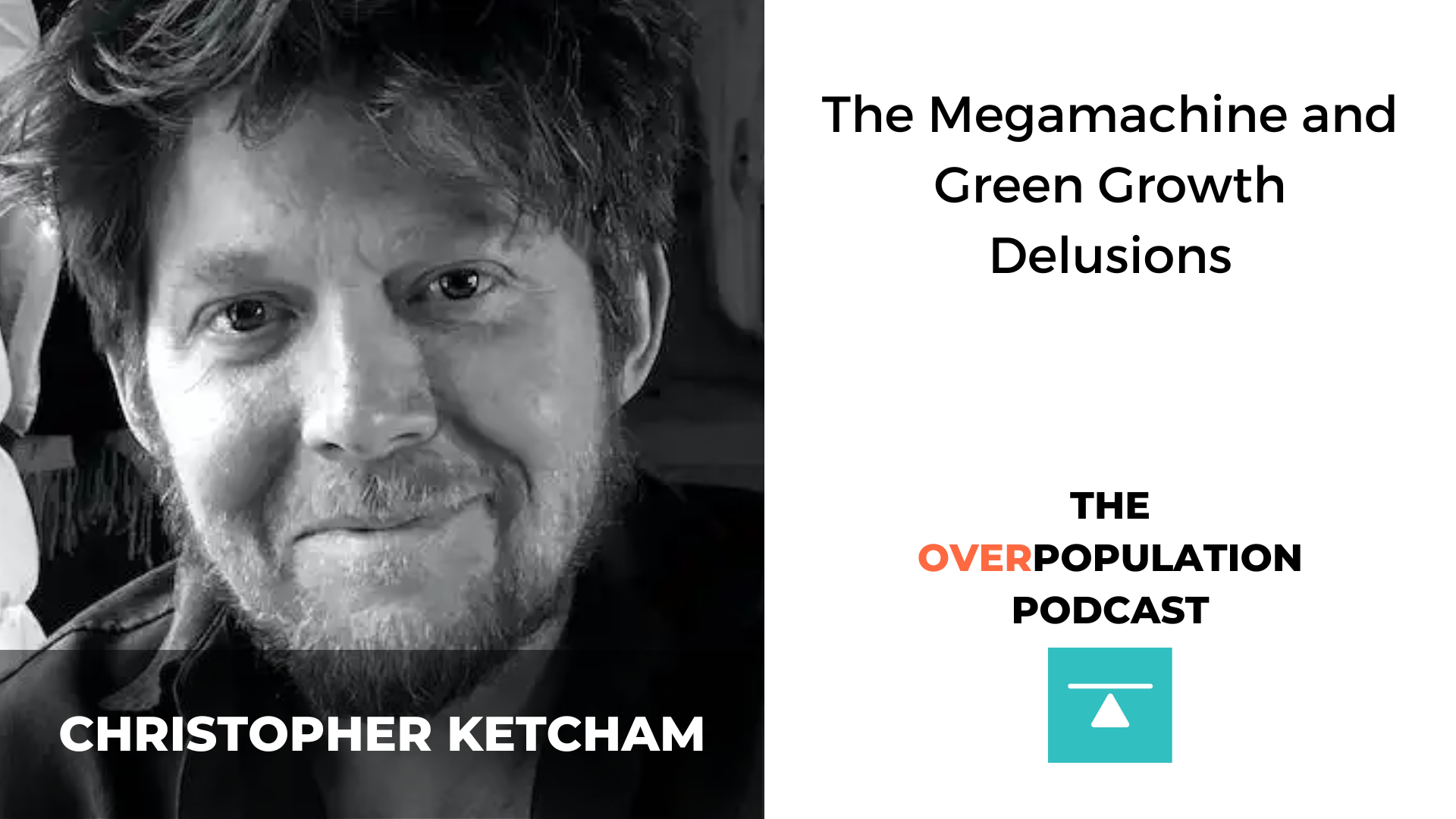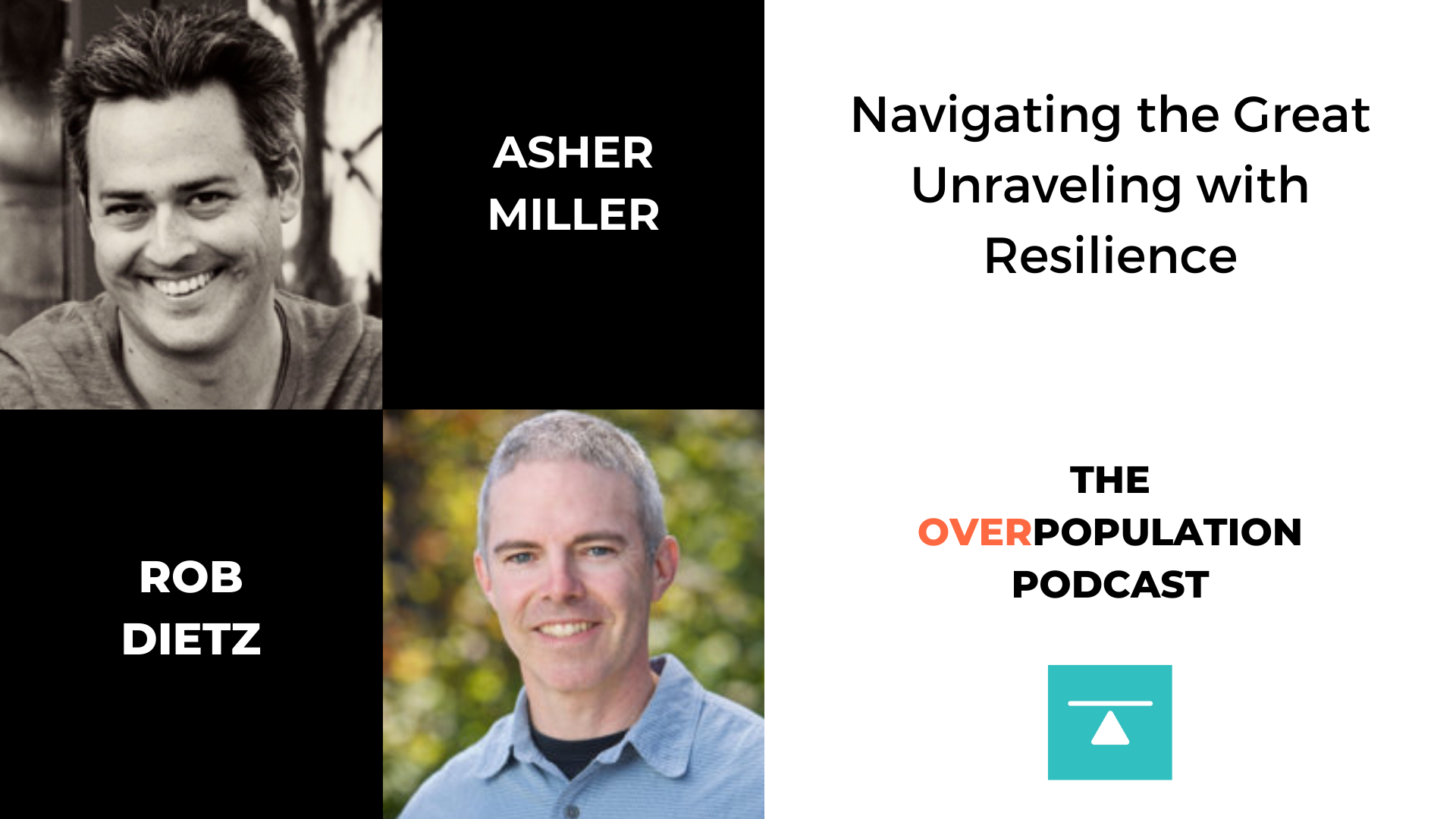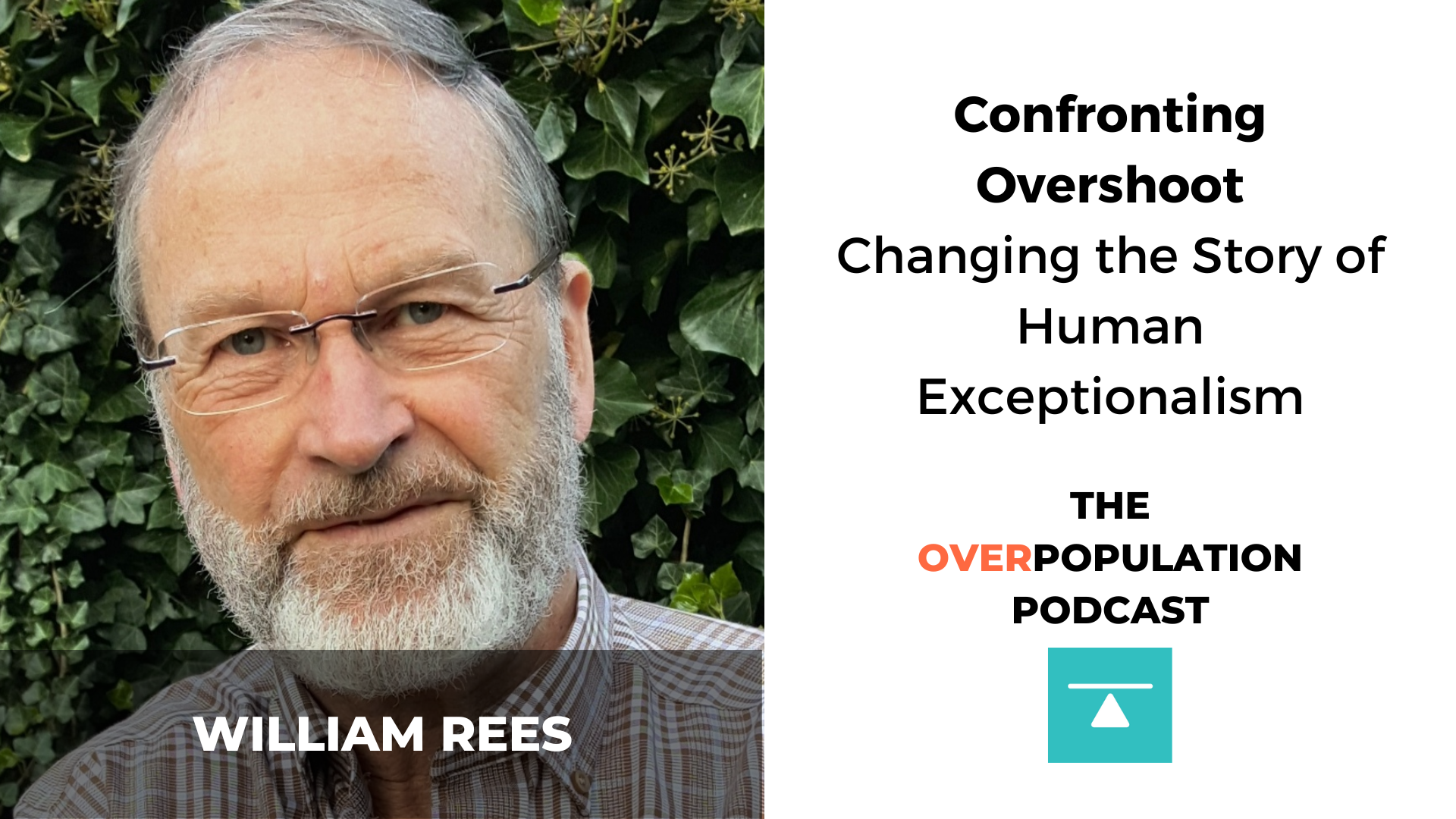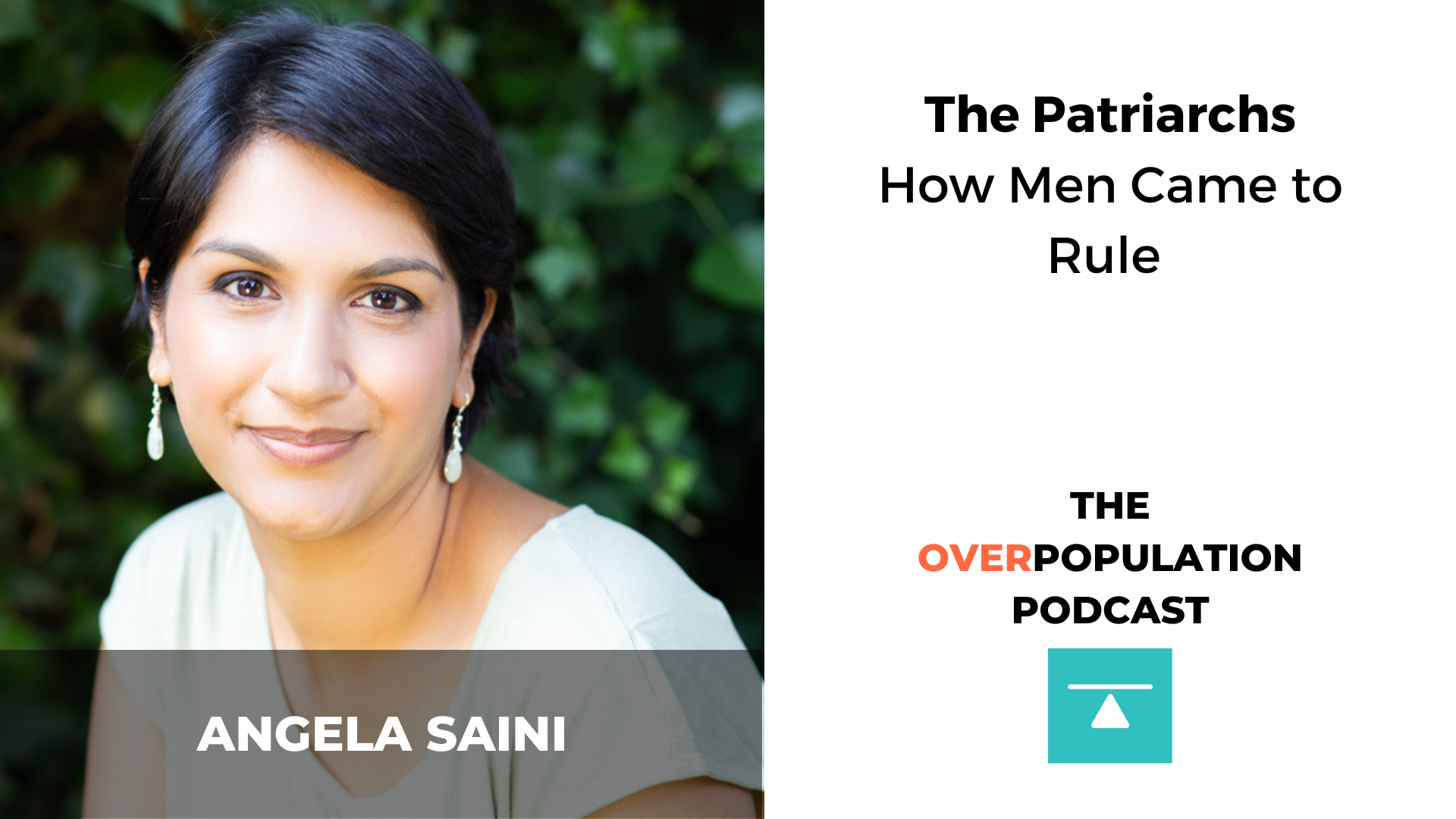
OUR PODCAST
Listen on your favorite app
The Overpopulation Podcast
The Overpopulation Podcast (here’s why we use the term “overpopulation”) features enlightening conversations between executive director Nandita Bajaj, researcher Alan Ware, and expert guests to discuss the often misunderstood impacts of our expanding human footprint on human rights, animal protection, and ecological preservation, as well as individual and collective solutions. We are proud to be the first and only nonprofit organization globally that draws the connections between pronatalism, human supremacy, social inequalities, and ecological overshoot. Ranking in the top 1.5% of all podcasts globally, we draw over 20,000 listeners from across 80 countries.
Read our Listener Feedback. | Support this podcast. | Subscribe to our newsletter.
New to our podcast?
There are over 60 episodes of The Overpopulation Podcast. If you are new to the podcast and are looking for a good place to start, we recommend you listen to these episodes first.
Latest Episodes

What Does Water Want? | Restoring Earth by Realigning with Water’s Rhythms
Erica Gies, award-winning journalist and author of Water Always Wins: Thriving in an Age of Drought and Deluge, chats with us about the complex relationships between water, nature, and human societies, emphasizing the need to embrace 'slow water'—respecting the natural rhythms of water’s cycles for the benefit of both human and nonhuman life.

Neither Property nor Persons | A Case for Animals as Legal “Beings”
Legal scholar Maneesha Deckha argues for a new legal category of “beingness” for animals that transcends the inadequate legal categories of “persons” or “property,” while also highlighting why a critique of human exceptionalism is essential to advancing the goals of anti-racism and decolonization.

Social Ecological Economics | Radical Transformation towards Social and Ecological Justice
In this episode we speak with Dr. Clive Spash, an economist who is fundamentally challenging conventional economic paradigms through his development of social ecological economics. His work addresses the intersections of human behavior, environmental values, and economic systems - advocating for a radical transformation towards a more socially and ecologically just world.

Hidden: Animals in the Anthropocene
In this episode we speak with Jo-Anne McArthur, acclaimed animal photojournalist and founder and president of We Animals Media, an organization whose photographers document the lives of unseen and ignored animals caught within human systems of exploitation and oppression.

The Megamachine and Green Growth Delusions
In this interview with freelance writer Christopher Ketcham, we unpack the techno-industrial extractivism — through public lands grazing, mining, and drilling — that plagues modern societies, and the media’s and government’s complicity in failing to challenge the growth model on which it is based.

Navigating the Great Unraveling with Resilience
In this episode, we chat with Asher Miller and Rob Dietz of the Post Carbon Institute about their latest report "Welcome to the Great Unraveling", which explores ways to navigate the environmental and social breakdown resulting from multiple intersecting crises.

Phoenix Rising: Pathways toward Animal and Human Liberation
Dr. Hope Ferdowsian, president of Phoenix Zones Initiative and a public health physician, discusses how she and her colleagues are working to dismantle the roots of oppression, exploitation, and domination harming humans and non-humans, and how we can cultivate the strength and resilience needed to facilitate that “phoenix effect” transformation for ourselves and for those in need.

Confronting Overshoot: Changing the Story of Human Exceptionalism
We chat with population ecologist, originator of “ecological footprint”, and one of the world’s best big-picture ecological thinkers, Dr. Bill Rees. Bill explains how our blind faith in human exceptionalism, technological optimism, and neoliberal economics fooled us into disregarding ecological limits and brought us into a state of extreme overshoot. How can we confront this reality, in which we are degrading the biophysical basis of existence, to prepare for a post-industrial world?

From Ego to Eco: Rewilding Nature and Ourselves
What happens when we renounce our ego and allow nature to become our teacher? Rainforest conservationist and educator Suprabha Seshan chats with us about her incredible efforts to protect and restore the forest at the Gurukula Botanical Sanctuary in Kerala, India.

The Beauty and Complexity of Animal Cultures
Ecologist Carl Safina challenges the notion that culture is exclusive to humans beings, and reveals the rich cultures and inner lives of non-human animals, and discusses how to move beyond human supremacy, which keeps us from appreciating the incredible beauty and complexity of other creatures.

The Social and Ecological Costs of Population Denialism | In memory of Haydn Washington
Dr. Helen Kopnina pays tribute to late Dr. Hadyn Washington and his uncompromising commitment to sustainability and justice. She also discusses her personal introduction to an eco-centric worldview through nature’s healing power, as well as the social and ecological costs of population denialism.

Weaving Meaning Back into Life
Deep and integrative thinker Jeremy Lent dismantles the dominant narrative that we are machines driven by selfishness and competition, and helps us reconsider our human identity in the context of the deep intelligence and interconnectedness that animates life within and around us.

Embracing Limits With Ecospheric Grace
Author Robert Jensen discusses his latest book An Inconvenient Apocalypse that he co-authored with The Land Institute’s co-founder Wes Jackson, about the need to grapple with difficult questions and to consciously embrace limits, as a pathway to a more graceful and meaningful co-existence with Nature.

A Profound Vision For An Ecological Civilization
Dr. Eileen Crist—a deep, profound, and compassionate systems thinker—shines a light on the worldview of human supremacy that foregrounds our relationship of dominion towards non-human animals and all of nature, and offers a vision for cultivating a more indigenous-inspired identity as Earthlings.

Sawing off the Limb on Which We are Perched
Co/author of over 40 books, including the best-selling book The Population Bomb, Dr. Paul Ehrlich gives us a 50,000-ft view of humanity’s evolution over 300,000 years and the misunderstood and manufactured “normal” that currently defines us.








